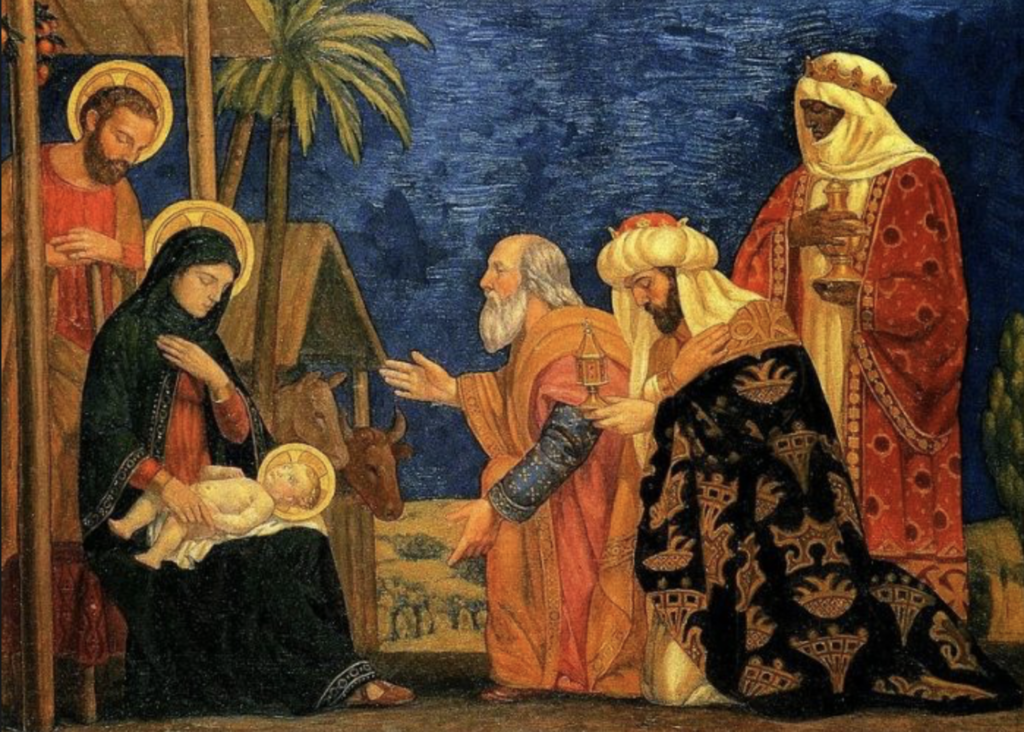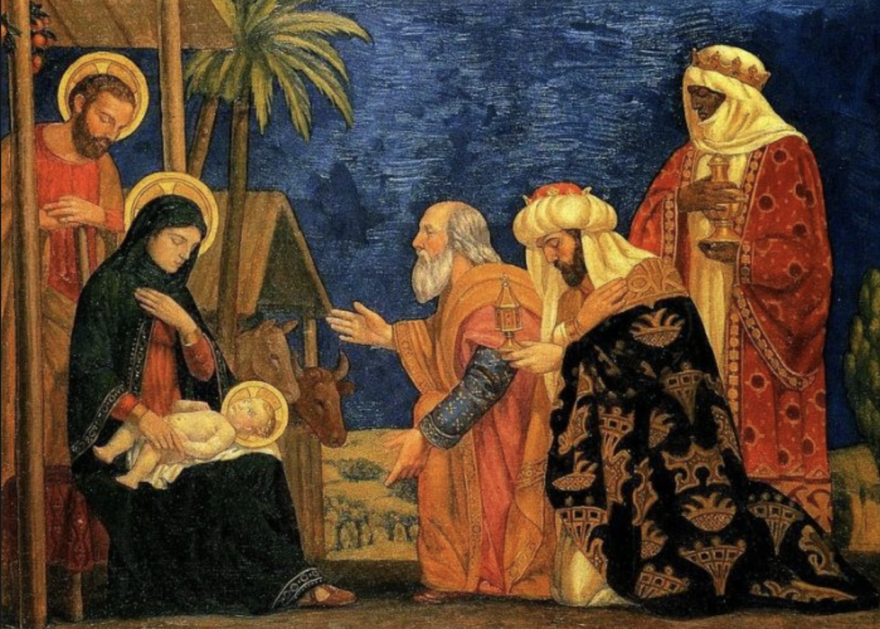
GIFTS—Twelve Days of the Nativity- DAY 9
In this series of articles, titled “Twelve Days of the Nativity, ” We take a deeper look into the nativity and all of it’s beautiful symbols. The Twelve Days of Christmas take on a whole new meaning as we discover Jesus Christ and His Ministry!
Matthew 2:11 And when they were come into the house, they saw the young child with Mary his mother, and fell down, and worshipped him: and when they had opened their treasures, they presented unto him gifts; gold, and frankincense, and myrrh.
GIFTS OF THE WISEMEN
In the story of the nativity, we have three gifts offered from the Wise Men—offerings of gold, frankincense and myrrh. These gifts did not just implicate monetary significance, but were spiritually symbolic as well.
GIFTS AND OFFERINGS IN TEMPLE WORSHIP
In my last article, “The Wise Men,” I discuss how the Magi were from a “priestly caste” of the religion of Zoroastrianism. The very actions of the Magi parallel ceremony of the High Priest in the Jewish Temple. In the Jewish Temple, the high priest would enter into the Holy of Holies (where only he could enter for purity reasons because it was where the presence of God dwelled). The Holy of Holies was the most sacred place of the temple. After he would enter, the high priest would “fall down, lying prostrate” to the floor. It was an act of submission to the Most High, bowing, with arms outstretched across the floor to symbolize his “lesser” status before God.
This same phrase, “fell down,” as translated from the greek word, piptó, is used to describe the act of one “lying prostrate” in the exact passage found in Matthew, where the wise men “fell down” and worshiped the Christ child. Just as the Jews had priest who “fell down,” in the Holy of Holies and made sacrifices on the altars of the temple, the Magi, from a religious priestly rank, “fell down” making offerings before the King of Kings. They “fell” prostrate at His feet to “worship” Him. They were in submission to one that was greater. Just as the High Priest, kneeling prostrate, was in submission to God. The parallel symbols are astounding!
CONTRASTING SPIRITUAL WEALTH FROM TEMPORAL
We know from New Testament writings that the “gifts” of the spirit can not be purchased with money (Acts 8:18). They can only be obtained through righteous offerings! These offerings begin with repentance! Jesus Christ speaks of gifts obtained from God when he says, “If ye then, being evil, know how to give good gifts unto your children: how much more shall your heavenly Father give the Holy Spirit to them that ask him?” (Luke 11:13). How much better is the gift of the spirit than all the gifts that we could obtain in the world! We are to store up treasures in heaven, rather than seeking after treasures that will perish. Our desire should be to obtain these “gifts” so that we can prophesy.
GIFTS FOR A KING
Anciently, it was a custom among kings to exchange gifts with one another. Rulers of kingdoms bartered for goods, but the act of exchanging “gifts” among “friendly” kings was done for different reasons. It was done to show mutual love and respect as “brothers” in the same way those who belonged to a “brotherhood” would. The specific gifts of gold, frankincense, and myrrh were not only symbolic, but represented gifts that reflected this mutual spiritual “brotherhood.” The Magi, who follow the star, knew and understood its heavenly significance. They understood that Mary’s son was The King of Kings, and came bearing gifts of tribute to One who was their elder “brother.”
GOLD
Gold is a symbol of royalty, wealth, and status. All ruling kings ornamented their palaces with not only gold, but also the various jewels and riches of the earth. A king’s “outward” riches reflected their power and the vastness of their kingdoms. The more physical possessions—the greater the King (or at least that was what the world saw with their outward eyes). When the Magi came bearing gold to a child born in humble circumstances—it was their outward recognition that they knew He was a King—a King not visible to those who “saw” with their physical eyes. Nonetheless, the gift of gold was reflective of the Christ child’s status of King.
FRANKENCENSE
Have you ever seen frankincense harvested from a tree? The bark of the tree is cut and the sap runs out from the tree and hardens into “resin.” The hardened resin is then gathered and can be boiled down, or used for its oils. It is highly valued for its medicinal properties, and it has also been found in ancient tombs amongst the wealthiest of individuals.. In Jewish culture, it was also used anciently as a perfume, and also in “meat offerings” on the temple altars. It’s aroma, as it drifted toward heaven, was described as “sweet” smelling to the Lord. Imagine an offering anointed with frankencense, as a prayer, as its “sweet” smells drift up toward heaven. Not only did frankincense have medicinal and ritualistic value, its monetary value was at one point equated with gold.
MYRRH
Myrrh was the perfume of royalty. The robes of Kings were performed with Myrrh (Psalms 45:9), as well as the maidens presented to the King—they were “perfumed” with myrrh as part of their purification. In the Song of Solomon, we find “sensual” descriptions of the fragrance and its use as a perfume between two lovers. There are also references in The Songs, to the King, “coming out of the wilderness”, “perfumed with all the fragrances of “frankincense and myrrh” (Song of Solomon 3:6). This gives us a parallel to Jesus, after wondering in the wilderness for 40 days, coming out with “power and glory”—ministering with the “gifts” of the spirit.
SEEK THE BEST GIFTS
The gifts from the Magi were temporal gifts for a Heavenly King that these spiritual men “recognized” because they laid up stores in heaven. Their gift offerings were for the Christ child, who was born of a humble birth, but their “bowing” in submission to Him was an act of submission to The King of Heaven. When we seek for gifts, we should seek the best gifts. We can be like the Magi! The gifts given on the altars of the temple were” similitudes” for the offerings we are to make to receive the greatest “gift”—the gift of the Holy Ghost from the Father.
